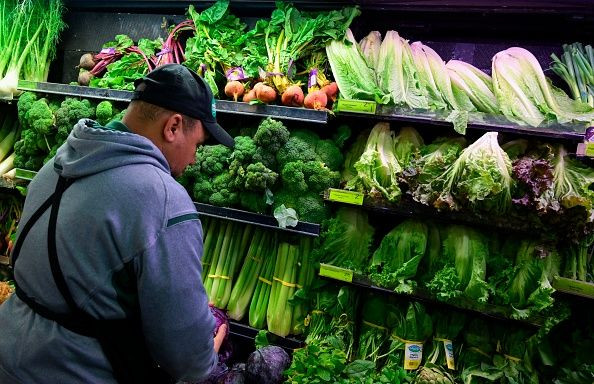What Lettuce Is Safe To Eat? Romaine Recall And What You Need To Know

With the U.S. Food and Drug Administration (FDA) and the Centers for Disease Control and Prevention (CDC) warning consumers about eating romaine lettuce because of an E.coli outbreak, you may wonder how this recall affects you and when you can start eating lettuce again. The FDA Commissioner Scott Gottlieb announced on Twitter Friday that the contaminated romaine lettuce is likely California-based, but it is still not safe for consumers to eat.
A total of 32 people have been infected with E.coli from eating the romaine lettuce in 11 states, according to the CDC. The CDC also reported that 13 people have been hospitalized from the E.coli outbreak with one developing hemolytic uremic syndrome - a life-threatening form of kidney failure. No deaths have been reported by the CDC.
States affected by the E.coli outbreak include California, Connecticut, Illinois, Massachusetts, Maryland, Michigan, New Hampshire, New Jersey, New York, Ohio, and Wisconsin. An additional 18 people have become sick from the same strain of E.coli in Canada, according to the Public Health Agency of Canada.
Both the FDA and the CDC are investigating the outbreak of E.coli from romaine lettuce and urging consumers to not eat it and instead, throw it away. Restaurants should also stop serving the romaine lettuce on their menu until the outbreak is managed and a confirmed source is identified. Retailers are also being asked to discontinue selling romaine lettuce, which is why shoppers no longer see it on store shelves.
Because no single distributor or source has been identified as the sole cause of the E.coli outbreak, the FDA and the CDC are cautioning consumers to stop eating all types and brands of romaine lettuce. This includes any romaine lettuce product such as whole heads, hearts, pre-cut bags and boxes, and salad mixes such as baby romaine, spring mix, and Caesar salads.
E.coli infection has symptoms that include watery or bloody diarrhea, fever, abdominal cramps, nausea, and vomiting. Symptoms from the bacteria typically last three or four days with most people getting better in five to seven days. However, children under five, adults older than 65, and those with weakened immune systems could develop more severe illnesses. Consumers that have any of symptoms related to E.coli should talk to their healthcare provider and report their illness to the health department.
© Copyright IBTimes 2024. All rights reserved.




















